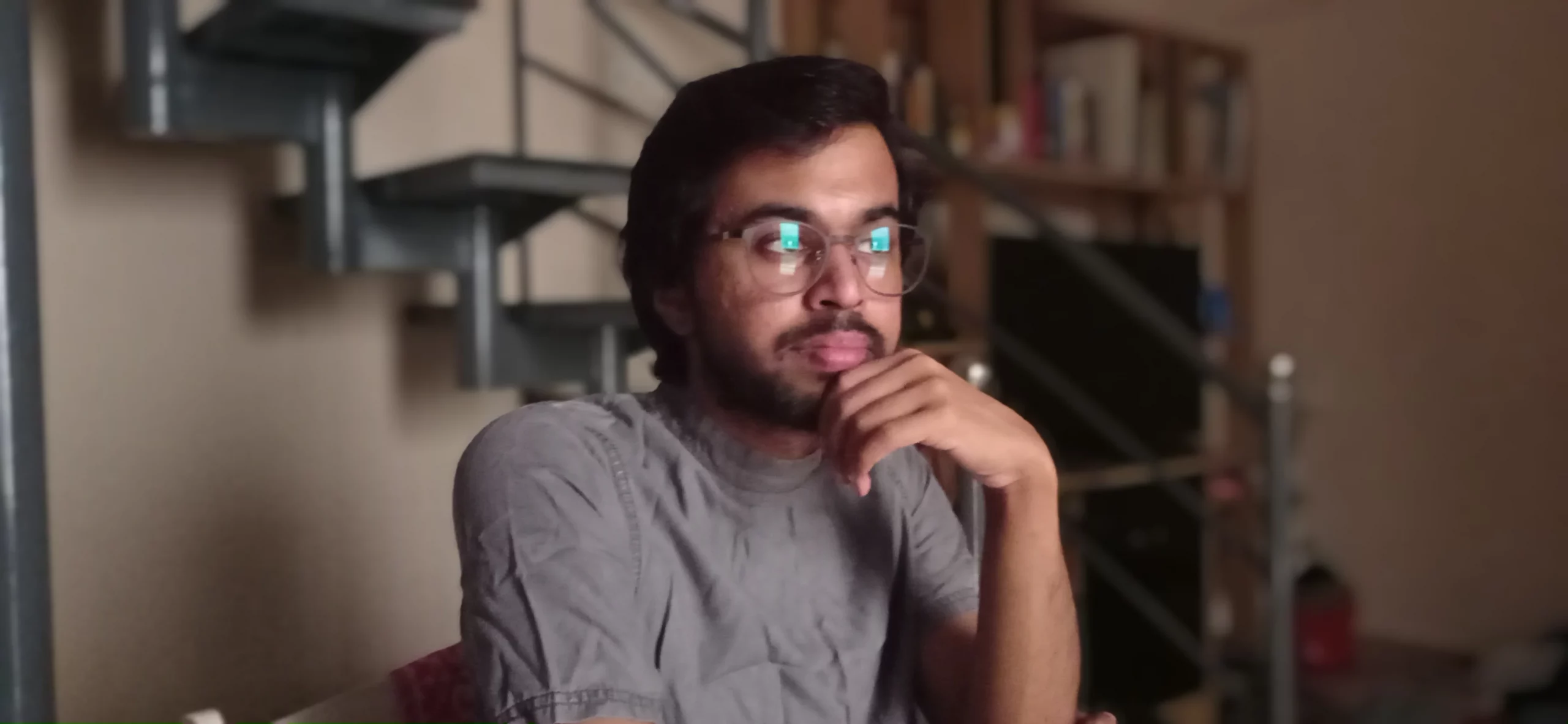A Talk With The Once Silent, Shilok Mukti
Pratisandhi’s Editorial team got in touch with Shilok Mukti, who is a performer, poet, and feminist activist. She has left a mark with her art, poetry, LGBTQIA+ talks, and feminist ideologues.
Edits have been made for the purpose of reporting.
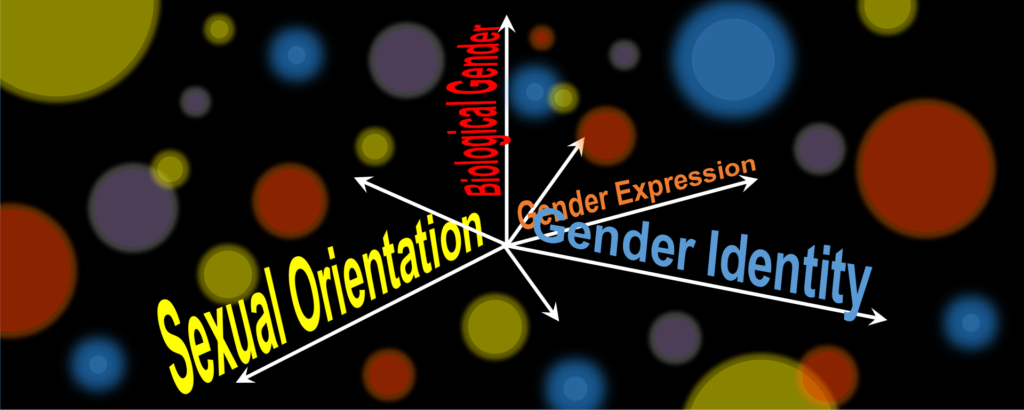
Question – Starting with our first question, how has your life been so far? How do you see yourself today, starting from the day when you decided to state your preferred identity? How has been this journey?
Shilok – Now to start from my personal space, my own identity is known to my parents, but they are unaware of the complete story. I had an argument with my father about using the right pronoun. So, it’s an everyday fight, a never-ending fight; because people want to label one, want to see one based on their perception. And self-existence does not matter. Neither for parents, friends nor for anyone. It’s not from the day I had chosen to explore myself. I think it’s about the hetero-normative conditions, even before one is born, which is a tight system, and getting out of it is pretty difficult.
I am trying to say here that one is conditioned in a certain way, and the cognitive behavior is being controlled. There is no free will, about what one chooses, what one wants to wear, and over the internal organs, one has within. So the moment one tries to break this, people perceive them as abnormal, and that something is wrong with them. This can lead one to think that something is wrong with them, and as a queer person one would have to deal with that situation; where there is nothing wrong with them but there is suffering because of the people around, and to satisfy them.
As a child, I had been a very introverted and obedient person. I listened to all the elders, all the teachers, studied well. There was constant pressure to prove myself so that people liked me. It was to hide the differences so that people would not see the queerness, by pushing myself so hard, so that people would perceive me as a good child, as an obedient child, who is good with studies and talented. Then at one point, one realizes that no matter what one does, it doesn’t matter, because the self doesn’t exist. Then when an individual tells people about how they want to be called, how they want to be named, and everything; people get into identity politics.
More than identity politics, it’s just living my life for myself. So, to find that self-love inside you, to accept who one is regardless of the color, the sex of the body, the scars, and so many other things which the body carries, to finally feel safe on one’s body. Unless another queer person is dealing with this, nobody can understand this. It looks like a theoretical concept for a lot of people, but it is a struggle. It is a struggle but quite adventurous and not boring.
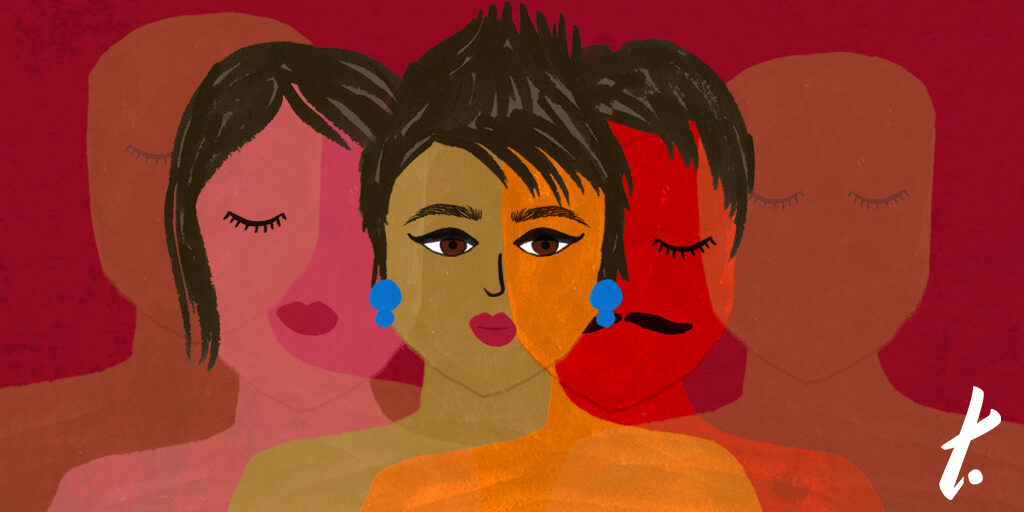
Question – You mentioned that people often assume the entire queer experience as just a theory. From which, our next question is, what are such other assumptions and myths which need to be busted?
Shilok – Before the surgery, I would like to talk about the identity point. I identify myself as a non-cis-gender woman, even though I don’t want it. But for certain reasons I have to take it. Now I don’t really identify as a transgender person. But people don’t even ask as to what one wants to be identified as for self.
I was having a talk with my theatre colleague, within which we were talking about our childhood dreams. We got to the point of identity politics and started discussing that as children we had dreamt to be a woman. Then when we fought so much against the government, getting the ID cards changed, going through surgery, people still wanted to box us. Just because I don’t menstruate, just because I don’t give birth, doesn’t make me any less of a woman. I am a woman no matter what; it is how I identify myself.
Now the kind of taboo and stereotypes people do have about the Sex reassignment surgery starts from people saying that one is getting a vagina because she wants to have sex with men; which is false. The second thing is when one transition from birth sex to self-identified sex, people try to stereotype their sexuality, i.e. one might be a heterosexual, as one is going to be a woman, and thus, be attracted to men. But I am a very sexually fluid person, I am a demi-sexual/sapiosexual. I have dated women, men, and non-gender binary. So, again with sexuality, people try to box.
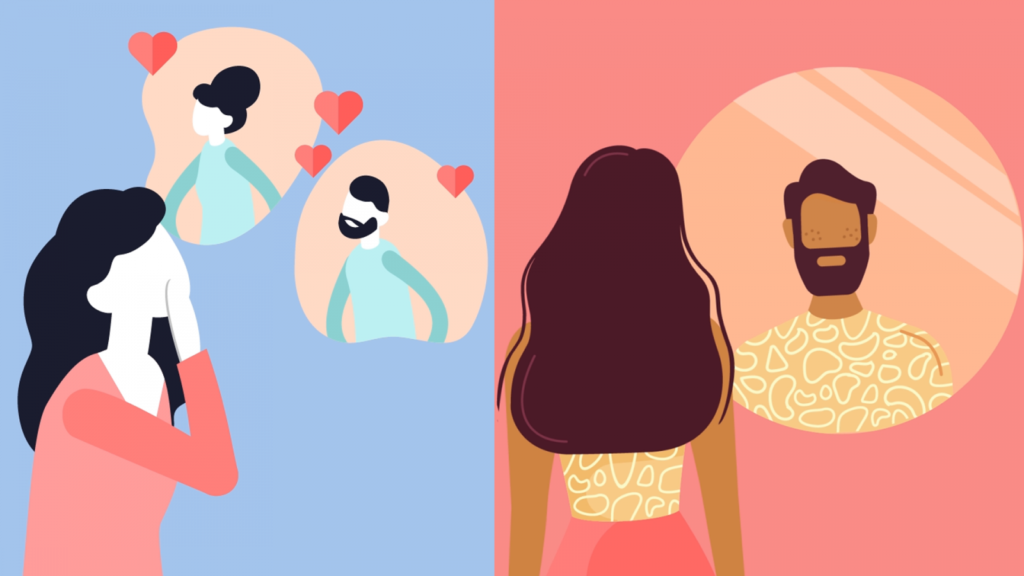
The third myth is that one going through Sex Reassignment surgery does not have any sexual feelings and that they are asexuals. This takes away one’s sexual right like implies that one does not have liberty. It fixes one as per people’s convenience. I repeat here that no one cares about what matters to the individual, but perceive it as per the convenience.
In the case of the hijra community, they are respected as sacred, some are sympathetic towards and some consider them divine, but they are not seen as human beings, like other queer people. I met a person during my radio shows, who had done their research on hamam. It is a place where the hijra community people give men massage, baths, and some sort of sex work. Men, who are HIV positive go there, with the belief that if they would have sex with a transgender person, they would be cured. This is a very dangerous unsafe notion. These are only some glimpses about the beliefs around.
Going through this transition is perceived as a trendy thing today, without the sensitivity towards the psychological trauma one goes through during it, and the dysphoria one goes through. It cannot be answered by one person or answer. In the context of the queer community, there cannot be one representative, as each experience is a unique complex intersection of gender, sexuality, sex, class, and caste.
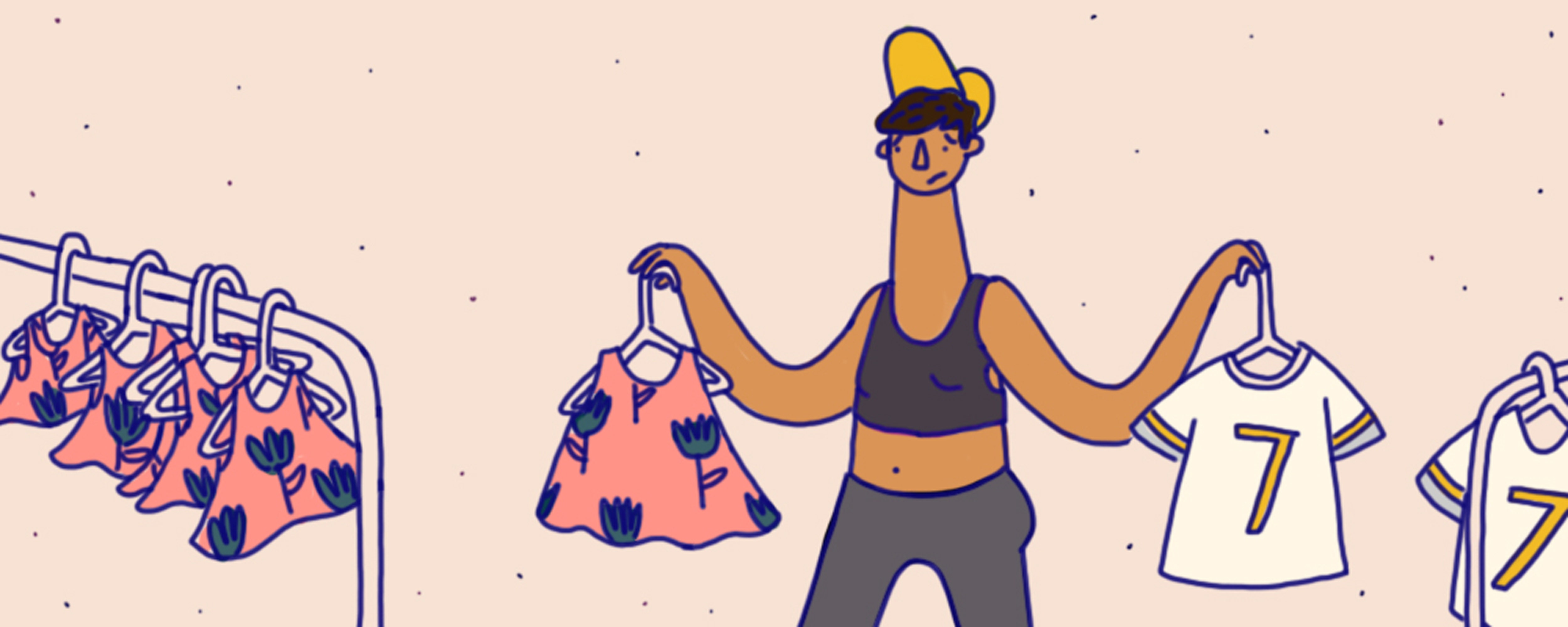
Question – You mentioned the point about the psychological trauma one goes through in this journey. From your experience, could you throw some light on the mental challenges which one will encounter, and how can the youth cope with them?
Shilok – Very importantly, the first mental health challenge one can face, I believe, whether it be a cis-gender or a non-cis-gender individual, is self-isolation. As a child, I used to isolate myself to avoid the drama from cis-gender straight men/boys or other girls. I did not go to the playground, did not play with people. I knew what was going to happen. Thus, I chose poetry to indulge myself. But isolation is not a healthy state. Humans are social beings, they need to have that social circle and engagement.
I think, what queer people face since childhood, people faced it during COVID – 19. During this time, when everyone was under lockdown and had to sit at home, it was so difficult to not have any interaction. But this is faced by queer people for their entire life. Though a weird comparison, it stands as a fact.
The second thing is one fails to express themselves. Usually, they indulge in art. Queer people are very creative, as most of them focus their traumatizing experiences on art production, which helps them to express themselves. But then there are people who fail to express themselves, who end up committing suicide or running away from the kin house. This leads to a lot of socio-economic challenges.
For a non-cis-gender person, gender dysphoria is different from feeling insecure in one’s body. It is something extra. It is not just about not being comfortable in one’s body. One does not feel at home in one’s body. One does not feel like the body belongs to them. One feels like a guest when one visits someone else’s house. Unless one goes through this, it cannot be explained easily. It is rare to come across such narratives, due to the lack of queer people being able to express themselves.
So, when one feels that one can go through the transition, even without the help of the parents, one consults a psychologist. So before one goes through the surgery, one certifies from a psychiatrist and a clinical psychologist after a counseling period of one year. Then one goes through Hormone therapy, which can affect mental health. There can be a lot of mood swings and changes in the body, which can make one crazy if unprepared. The surgery is an entire experience in itself, where one gives birth to one’s self.

Question – What do you think are some of the challenges which the present medical structure poses for a queer person, be it out of ignorance or an attitude to overlook the needs?
Shilok – Now personally, I did not face a lot of challenges, as I was aware of where to go. But from others, I have heard that there is a lack of awareness as to where one can go. People might not get the right medical practitioners. Our medical system is very binary, so many practitioners do not know how to deal with the situation. Some stories go about that queer people are asked to get out of the hospital and they are mistreated; because of which one can hesitate from going to the hospital.
It is wrong as everyone has the right to medical treatment. There is a need for sensitization in this country about the needs of the queer people. On the other hand, queer people need to be given information about the places they can approach so that they would reach into safe hands.
Very importantly, due to the binary structure of the medical system, I am left to wonder about the right dosages for me, who has gone through surgery, as they are fixed for two sexes only. My hormones are completely different from cis-gender individuals. Now as one identifies the self with one sex, one cannot get help from the medical structure if it is safe for the individual to go through the transition.
The other important thing is the tendency among some trans-people to take in estrogen, when they fail to meet a doctor, or maybe birth control pills. The skin becomes so sensitive that one cannot wear clothes. This kind of self-treatment is really dangerous when one fails to meet the right person.
Question – As a media person, what would be your key warnings for the youth against the online content available on these topics?
Shilok – I am a media student and have been working as a journalist. It makes me media literate. It is to understand how the media works and the workings of information technology. If one is not aware of these things, they can become easy targets of the misinformation available on the digital platform. So, it is important to do one’s research and to look out for reliable sources for help.
Another important thing is that if one belongs to India, the necessities could be different, which cannot be derived from Western information. So, it is important to cross-check certain facts, to know what works for one’s self. Now we live a life of gadgets. It is easy to access information, but it is not good to know too much. If one wants to know more about something, one does not have to keep reading about it too much, as it could affect mental health. It is good to meet reliable people.
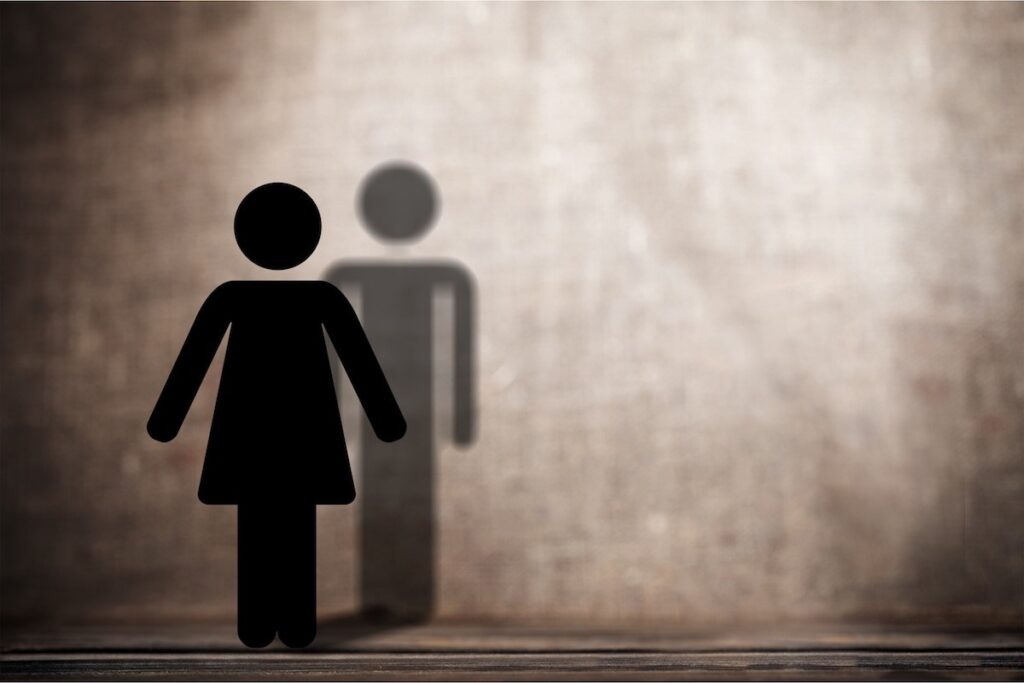
Question – Now on the point of reliable sources, could you make a list of such places for our readers?
Shilok – One is Savbhav. There is Queer Campus for students who want to meet other students from school and colleges to feel safe and talk about the problems in their respective spaces. There is Good As You, for gay men and other queer people too on the Facebook page. For queer women, there is ASQ (All Sorts of Queer Women), which also has a Facebook page. As for hospitals, one can find help in M. S. Ramaih, St. John’s Hospital. For surgery, I would suggest Gokhala Devi hospital where I was helped by Dr. Sanjay Pandey, who is a neurosurgeon. He has his Youtube videos.
Question – Considering your milestones in this journey, what would you suggest as precautions to be kept in mind if one chooses to go through the same journey?
Shilok – One needs to be mentally well-prepared. One needs to be emotionally ready. It takes time to heal and there is a lot of blood. One should be in constant touch with their surgeon, and should not hesitate from asking any questions. Post-surgery I would suggest drinking a lot of water for a faster healing process.
Featured Graphic Design: Vaibhavi Pant
Author
